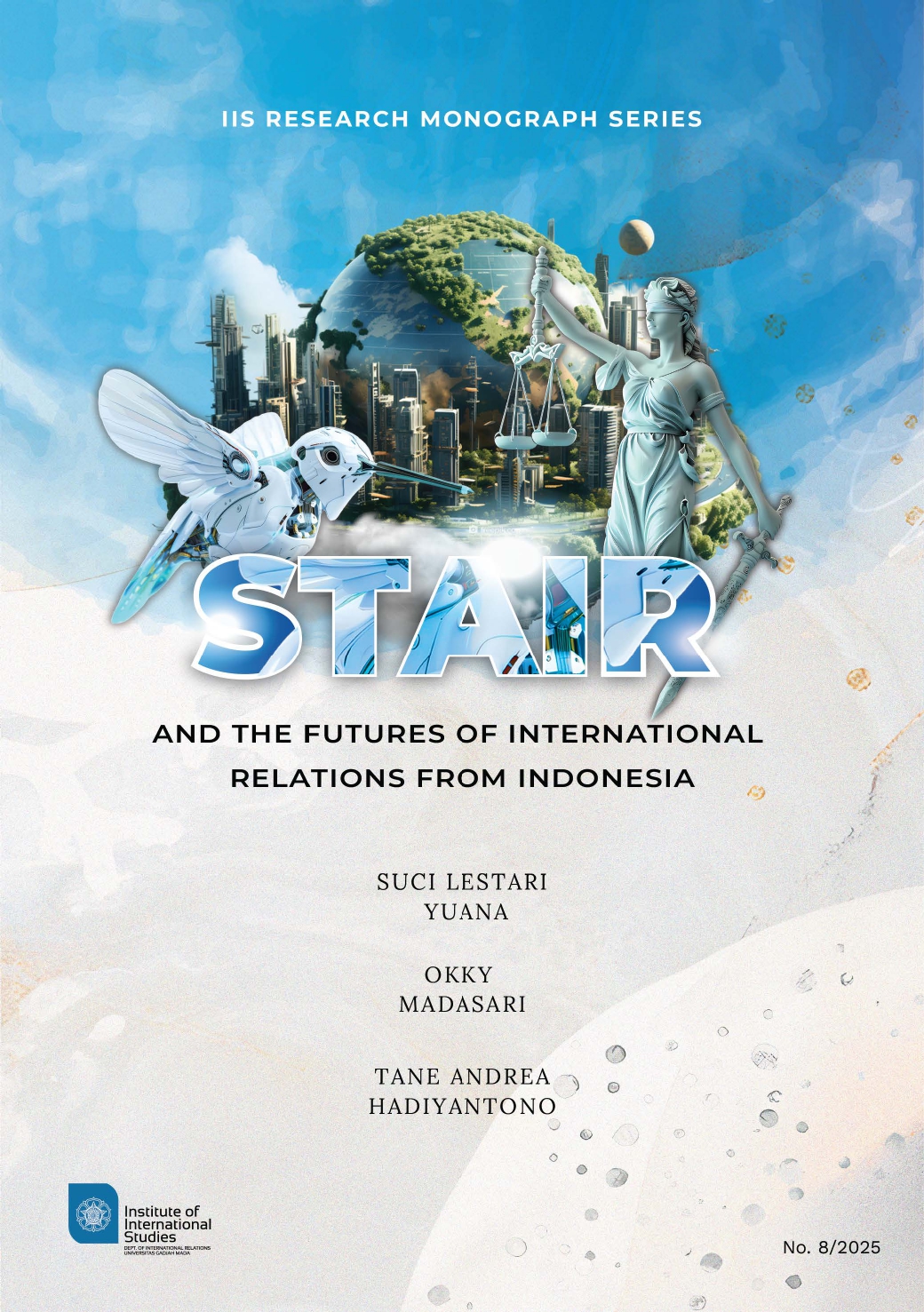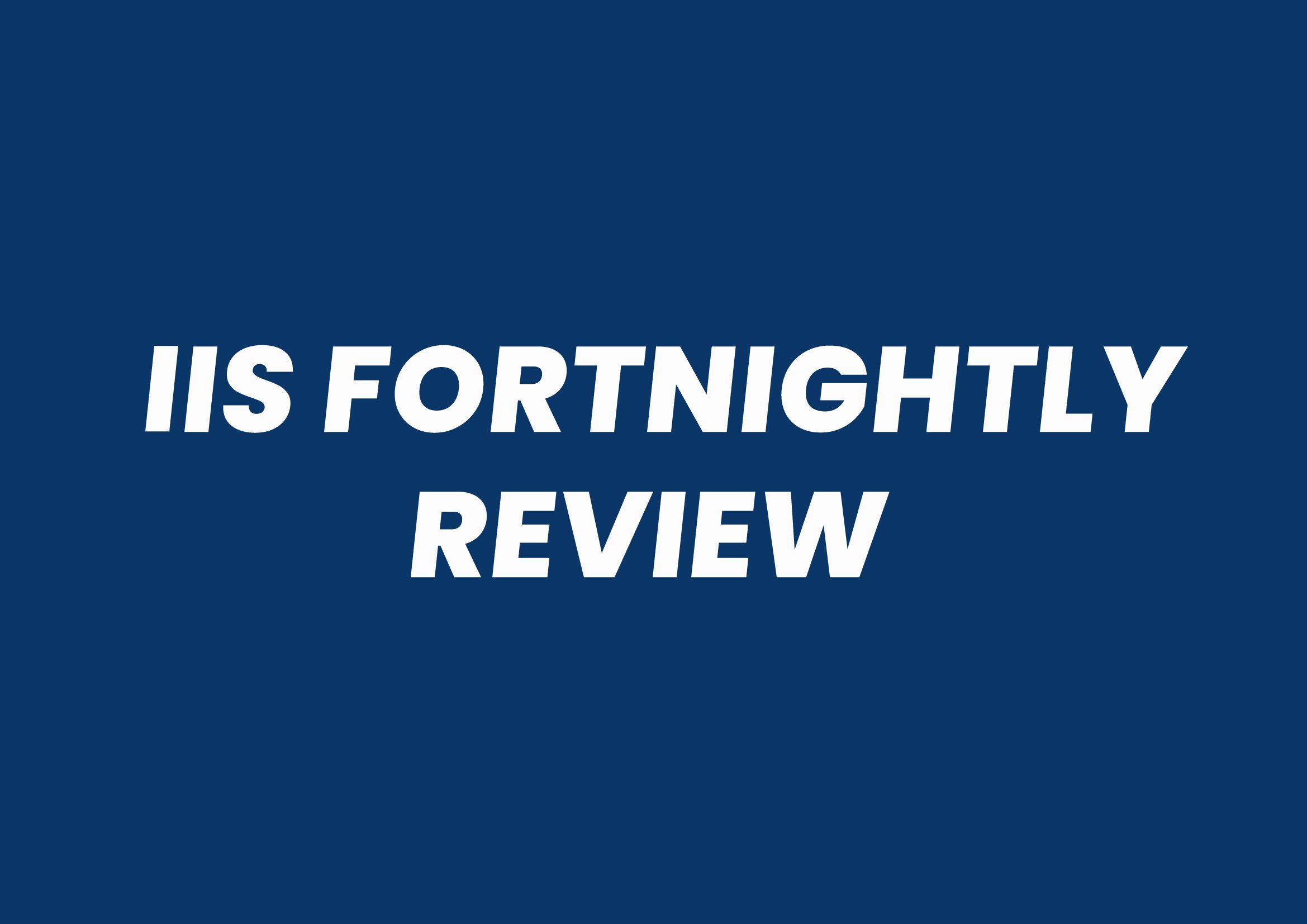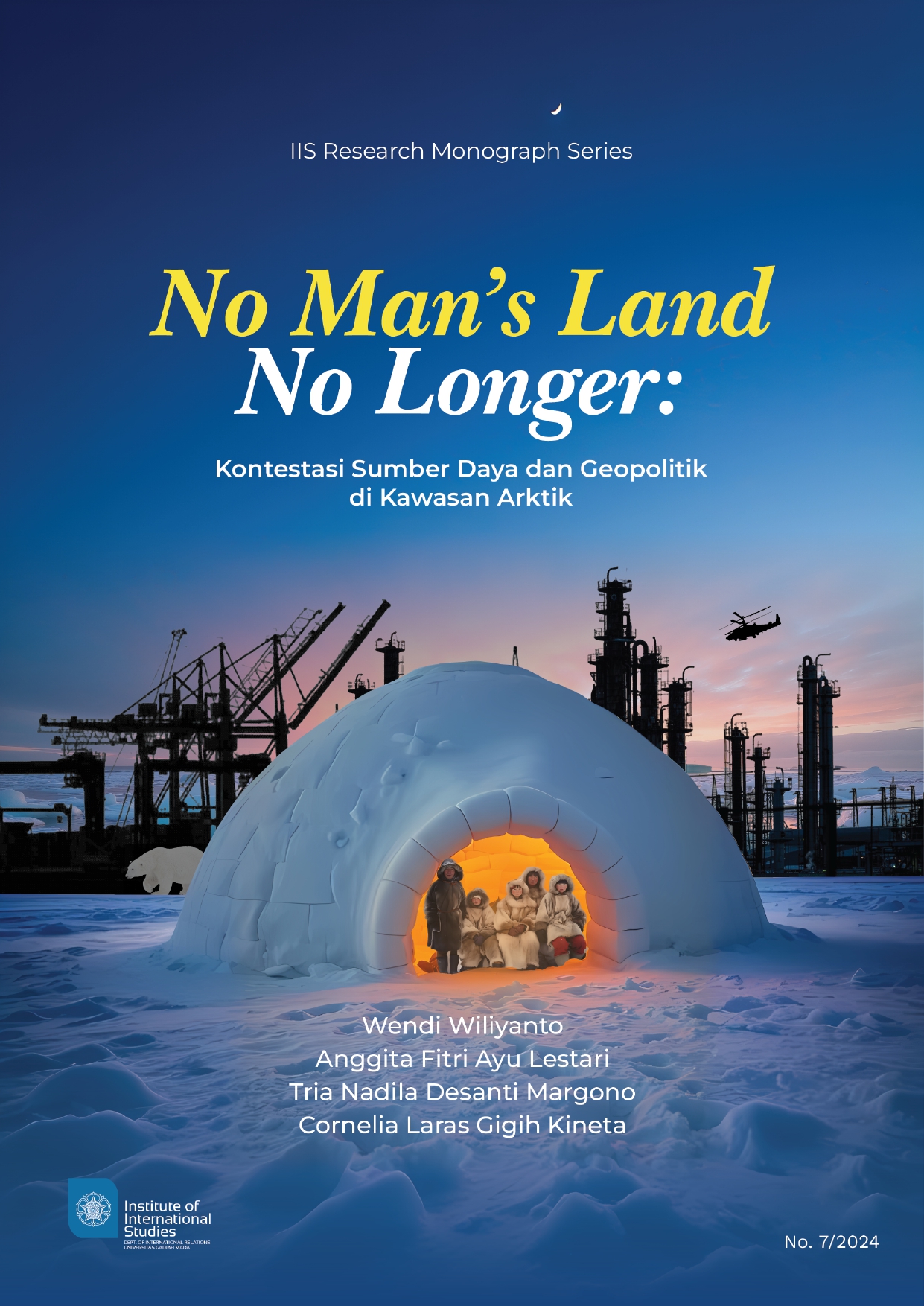[googlepdf url=”https://iis.fisipol.ugm.ac.id/wp-content/uploads/sites/720/2025/02/Monograph-8-STAIR.pdf” download=”Download” width=”100%” height=”600″]
STAIR and the Futures of International Relations from Indonesia is more than a book—it’s a manifesto for reimagining global politics through the lens of the Global South!
From the birth of the STAIR Community in Indonesia to the urgency of decolonizing IR studies, this monograph challenges the traditional perspectives by incorporating critical approaches, such as phenomenology, the politics of technology, and aesthetics into international studies.







